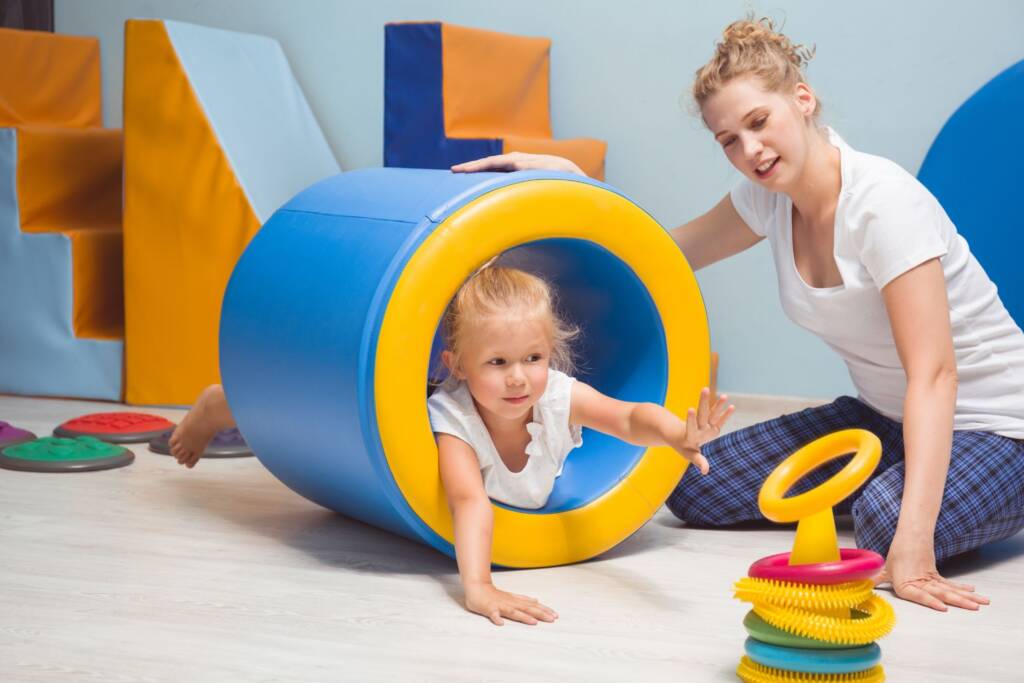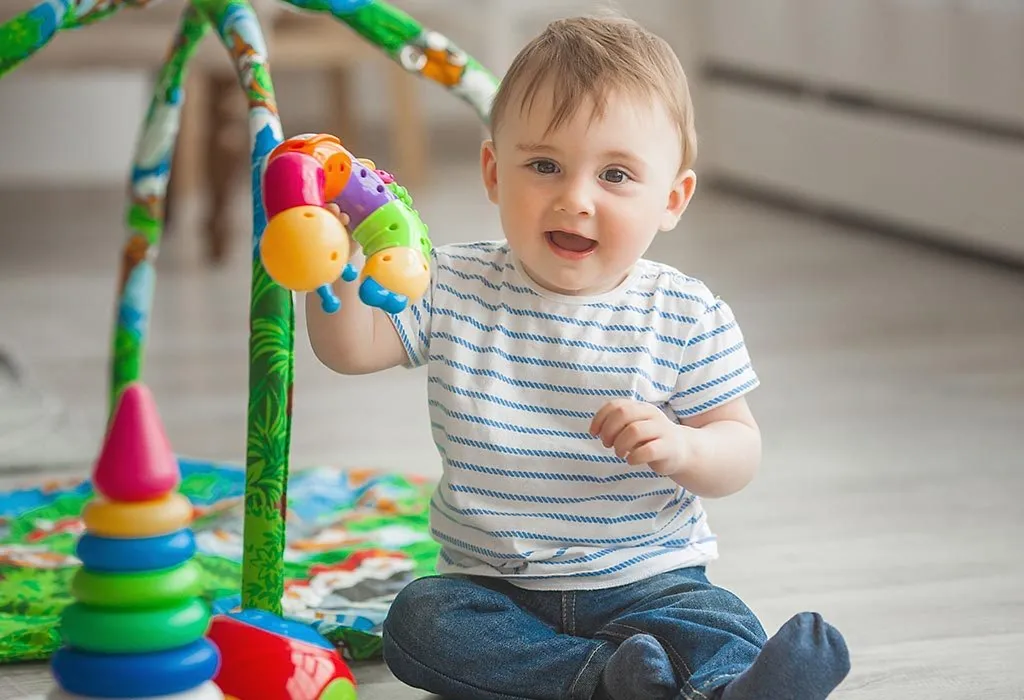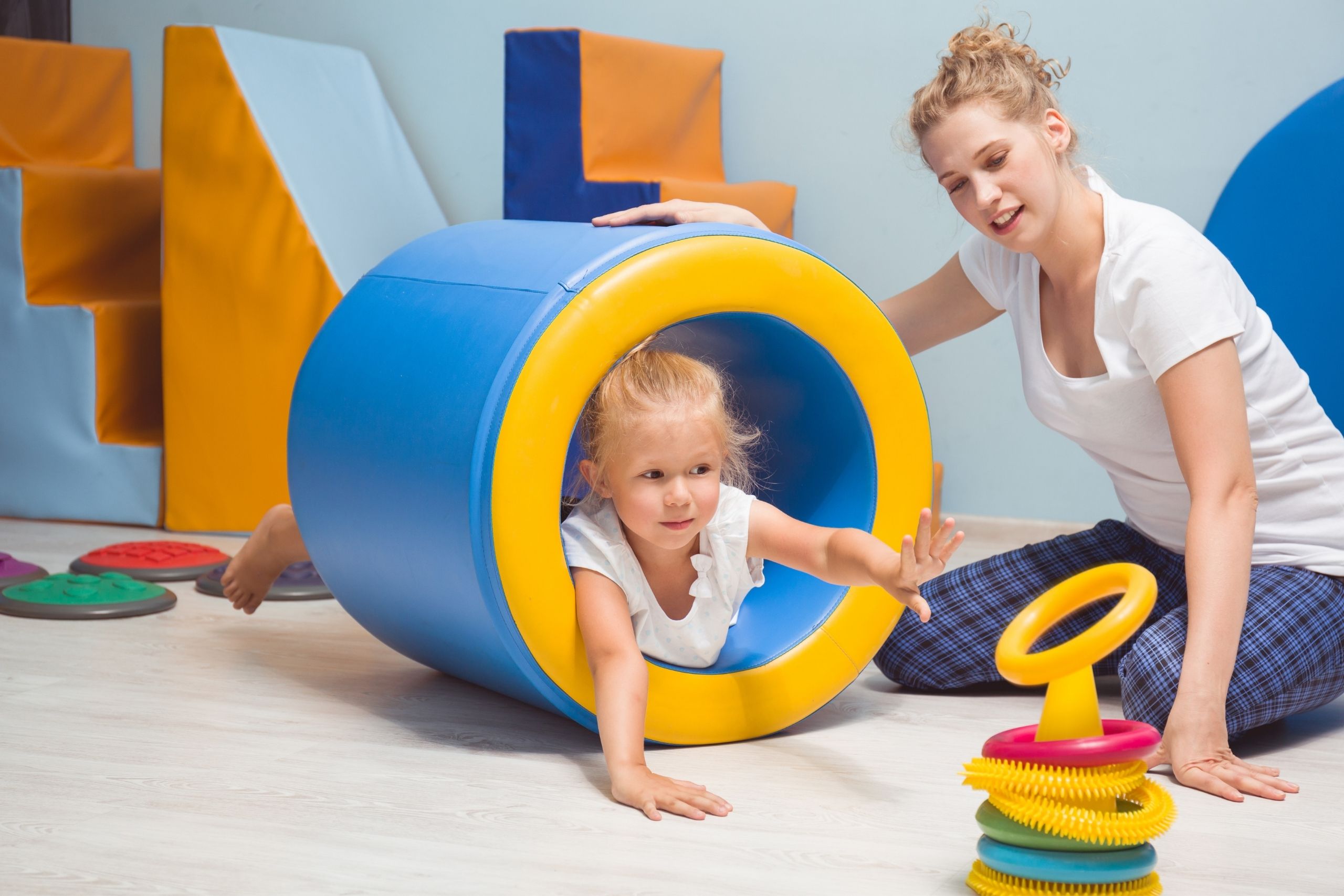Play is a crucial aspect of early childhood development, offering far more than mere entertainment. It is a fundamental component of cognitive growth, aiding in the development of critical thinking, problem-solving, language, and social skills. This comprehensive guide explores the multifaceted role of play in a baby’s cognitive development, providing parents and caregivers with valuable insights and practical tips to support their child’s growth.
What is Cognitive Growth?
Cognitive growth refers to the development of a child’s ability to think, understand, and interact with the world around them. This includes the development of skills such as memory, problem-solving, language, and reasoning. Cognitive development occurs in stages, with significant milestones typically reached at various ages.
The Science Behind Play and Cognitive Growth
Research shows that play is integral to brain development. Engaging in play activities stimulates the brain, creating neural connections that support various cognitive functions. Studies have demonstrated that children who engage in regular, diverse play activities exhibit better cognitive skills and perform well in academic and social settings.
Types of Play and Their Cognitive Benefits
Play can be categorized into different types, each offering unique benefits for cognitive growth:
- Sensorimotor Play: Involves activities that engage the senses and motor skills, such as grasping objects, crawling, and exploring textures.
- Constructive Play: Involves building or creating something, like stacking blocks or assembling puzzles, which enhances problem-solving and spatial awareness.
- Symbolic Play: Includes pretend play and role-playing, fostering language, creativity, and social understanding.
- Games with Rules: Involves structured games that follow specific rules, promoting logical thinking, memory, and social cooperation.
Sensorimotor Play
Definition and Examples
Sensorimotor play involves activities that stimulate a baby’s senses and motor skills. Examples include:
- Tummy time
- Reaching for and grasping toys
- Exploring different textures with their hands and mouth
Benefits for Sensory and Motor Development
Sensorimotor play is crucial for developing fine and gross motor skills. It helps babies learn about their bodies and the world around them, laying the foundation for more complex cognitive tasks.
Constructive Play
Definition and Examples
Constructive play involves activities where children manipulate objects to create or build something. Examples include:
- Stacking blocks
- Building with LEGO
- Drawing and coloring
Cognitive Skills Developed Through Constructive Play
This type of play enhances spatial awareness, problem-solving abilities, and fine motor skills. It also encourages creativity and planning as children decide what to build and how to accomplish it.

Symbolic Play
Definition and Examples
Symbolic play involves using objects or actions to represent other objects or actions, fostering imagination and abstract thinking. Examples include:
- Pretend play (e.g., playing house, doctor, or superheroes)
- Using a stick as a sword or a block as a phone
Role in Language and Social Development
Symbolic play supports language development by encouraging children to use words and sentences to describe their play scenarios. It also promotes social skills as children learn to cooperate and negotiate roles in their pretend games.
Games with Rules
Definition and Examples
Games with rules are structured activities that follow specific guidelines. Examples include:
- Simple board games like Candy Land
- Hide and seek
- Simon says
Benefits for Logical Thinking and Problem-Solving
These games teach children about following rules, taking turns, and strategic thinking. They also enhance memory and logical reasoning skills as children learn to anticipate outcomes and make decisions.
Play and Language Development
How Play Enhances Language Skills
Play provides a natural context for language learning. Through play, babies hear and practice new words, understand sentence structures, and improve their communication skills.
Types of Play That Promote Language Development
Interactive play, such as reading books, singing songs, and engaging in pretend play, significantly enhances language skills. These activities introduce new vocabulary and encourage verbal expression.
Play and Social Development
Role of Play in Developing Social Skills
Play teaches babies how to interact with others, share, take turns, and resolve conflicts. It helps them understand social norms and develop empathy.
Cooperative Play and Its Benefits
Cooperative play, where children work together towards a common goal, fosters teamwork, communication, and problem-solving skills. It also helps build strong social relationships.
Play and Emotional Development
How Play Helps Babies Understand and Express Emotions
Through play, babies explore their feelings and learn to express emotions appropriately. Pretend play, in particular, allows them to act out different scenarios and understand various emotional responses.
Types of Play That Support Emotional Growth
Activities like role-playing, storytelling, and art allow children to express their emotions creatively. These types of play help them develop emotional regulation and empathy.
Role of Parents and Caregivers in Play
How Parents Can Facilitate Cognitive Growth Through Play
Parents play a crucial role in their child’s play experiences. By engaging in play, providing diverse play materials, and encouraging exploration, parents can significantly boost cognitive growth.
Importance of Being Involved in the Play Process
Active involvement in play helps parents understand their child’s interests and developmental needs. It also strengthens the parent-child bond and provides opportunities for guided learning.
Creating a Stimulating Play Environment
Essential Elements of a Play-Friendly Environment
A stimulating play environment should include:
- Safe and age-appropriate toys
- A variety of textures and colors
- Space for both quiet and active play
Tips for Setting Up a Stimulating Play Area at Home
To create an engaging play area:
- Designate a specific play space
- Rotate toys regularly to maintain interest
- Include books, puzzles, and open-ended toys like blocks and dolls
Age-Appropriate Play Activities
Play Activities for Newborns (0-3 Months)
For newborns, focus on activities that stimulate their senses, such as:
- Soft, colorful toys for visual stimulation
- Gentle music and lullabies
- Tummy time to develop neck and shoulder muscles
Play Activities for Infants (3-6 Months)
Infants enjoy activities that promote exploration and movement, including:
- Rattles and teething toys
- Simple peek-a-boo games
- Rolling a ball back and forth
Play Activities for Older Babies (6-12 Months)
For older babies, activities that enhance motor skills and cognitive development are ideal, such as:
- Stacking cups and rings
- Pushing and pulling toys
- Interactive books with textures and flaps
Sensory Play Ideas
Simple Sensory Play Activities
Sensory play activities can be simple yet highly effective, including:
- Playing with water and sand
- Exploring different textures with a sensory bin
- Finger painting
Benefits of Sensory Play for Cognitive Development
Sensory play enhances fine motor skills, language development, and problem-solving abilities. It helps babies make sense of the world through direct sensory experiences.
Music and Cognitive Growth
Role of Music in Cognitive Development
Music stimulates brain areas involved in language, reasoning, and creativity. It enhances memory and emotional expression.
Play Activities That Incorporate Music
Incorporate music into play by:
- Singing nursery rhymes
- Playing musical instruments like tambourines and maracas
- Dancing to different types of music
Outdoor Play and Cognitive Development
Benefits of Outdoor Play
Outdoor play offers numerous cognitive benefits, including:
- Exposure to new environments and experiences
- Opportunities for physical activity and exploration
- Enhancing sensory development through nature
Ideas for Outdoor Play Activities
Outdoor play activities include:
- Playing in the sandbox
- Going for nature walks
- Playing with balls and other outdoor toys
The Role of Toys in Cognitive Growth
Choosing the Right Toys for Cognitive Development
Select toys that are age-appropriate, safe, and promote various cognitive skills. Look for toys that encourage problem-solving, creativity, and physical activity.
Toy Recommendations for Different Stages
For newborns, consider soft toys and rattles. For infants, choose stacking toys and activity centers. Older babies benefit from puzzles, building blocks, and interactive books.
Play and Problem-Solving Skills
How Play Fosters Problem-Solving Abilities
Through play, babies learn to overcome challenges, find solutions, and develop critical thinking skills. Problem-solving activities include puzzles, building blocks, and shape sorters.
Examples of Play Activities That Enhance Problem-Solving Skills
Activities that enhance problem-solving include:
- Sorting shapes and colors
- Building towers with blocks
- Playing with cause-and-effect toys like pop-up toys
Role of Play in Memory Development
How Play Activities Improve Memory
Play activities that involve repetition, sequencing, and storytelling help improve memory by reinforcing neural connections.
Memory-Enhancing Play Ideas
Enhance memory with activities like:
- Playing memory games with cards or objects
- Reading repetitive and rhyming books
- Engaging in pretend play scenarios
Play and Attention Span
Impact of Play on Attention Span and Focus
Engaging play activities can help improve a baby’s attention span and focus by capturing their interest and encouraging sustained interaction.
Play Activities That Help Improve Concentration
Activities that enhance concentration include:
- Puzzles and matching games
- Building with blocks
- Interactive story time
Importance of Free Play
Definition and Benefits of Free Play
Free play is unstructured, voluntary play that allows children to use their imagination and creativity. Benefits include enhanced problem-solving skills, creativity, and independence.
Balancing Structured and Unstructured Play
While structured play has its benefits, it’s essential to balance it with free play to allow children the freedom to explore and innovate.
Play and Creativity
How Play Stimulates Creativity and Imagination
Play encourages children to think creatively, explore new ideas, and use their imagination to create stories and scenarios.
Creative Play Activities for Babies
Stimulate creativity with activities like:
- Dress-up and role-playing
- Drawing and painting
- Building and construction play
Play and Cognitive Flexibility
Role of Play in Developing Cognitive Flexibility
Cognitive flexibility refers to the ability to switch between thinking about different concepts or to think about multiple concepts simultaneously. Play helps develop this skill by encouraging adaptability and problem-solving.
Examples of Play That Promote Adaptability and Flexible Thinking
Activities that promote cognitive flexibility include:
- Playing with open-ended toys like blocks and dolls
- Engaging in pretend play with changing scenarios
- Problem-solving games that require different strategies
Technology and Play
Impact of Technology on Cognitive Development
While technology can offer educational benefits, excessive screen time can hinder cognitive and physical development. Balance is key.
Balancing Screen Time and Traditional Play
Limit screen time and ensure it includes interactive, educational content. Complement it with traditional play activities that promote hands-on learning and physical movement.
Challenges in Facilitating Play
Common Obstacles Parents Face in Encouraging Play
Common challenges include lack of time, space, and resources. Parents may also struggle with finding age-appropriate activities or balancing screen time.
Solutions to Overcome These Challenges
Overcome these challenges by:
- Setting aside dedicated playtime each day
- Creating a versatile play space with minimal equipment
- Seeking out community resources like libraries and playgroups
Monitoring and Assessing Cognitive Growth
Signs of Healthy Cognitive Development
Healthy cognitive development is indicated by milestones such as:
- Responding to their name
- Exploring objects with curiosity
- Engaging in simple problem-solving activities
Tools and Methods for Assessing Cognitive Growth Through Play
Assess cognitive growth through:
- Observing play behavior and milestones
- Using developmental checklists
- Consulting with pediatricians and child development specialists
Role of Play in Early Education
Integration of Play in Early Learning Programs
Play-based learning is an integral part of early education programs. It helps children develop foundational cognitive, social, and emotional skills.
Benefits of Play-Based Learning
Play-based learning promotes curiosity, exploration, and a love for learning. It supports holistic development by integrating cognitive, social, and physical activities.
Cultural Differences in Play
How Play Varies Across Different Cultures
Play activities and practices vary widely across cultures, reflecting different values, traditions, and resources.
Influence of Cultural Practices on Cognitive Development Through Play
Cultural practices influence the types of play and learning experiences children have, shaping their cognitive development in unique ways.
Play and Executive Function Skills
Definition of Executive Function Skills
Executive function skills include self-control, working memory, and cognitive flexibility. These skills are essential for goal-directed behavior and problem-solving.
Play Activities That Support the Development of These Skills
Activities that support executive function skills include:
- Games that require taking turns and following rules
- Memory and matching games
- Pretend play scenarios that involve planning and organizing

Play and Spatial Awareness
How Play Improves Spatial Awareness and Reasoning
Spatial awareness involves understanding the relationships between objects and oneself in space. Play activities like building and navigating spaces enhance this skill.
Activities to Enhance Spatial Skills
Enhance spatial skills with activities like:
- Building with blocks and LEGO
- Playing with shape sorters and puzzles
- Drawing and coloring
Role of Play in Numeracy Skills
Play Activities That Introduce Basic Math Concepts
Introduce basic math concepts through play by:
- Counting objects during play
- Sorting toys by size, shape, or color
- Using number puzzles and games
Importance of Play in Developing Numeracy Skills
Play helps children understand math concepts in a hands-on, engaging way, laying the foundation for more complex mathematical thinking.
Play and Literacy Skills
How Play Supports Early Literacy Development
Play enhances literacy skills by introducing new vocabulary, encouraging storytelling, and developing pre-reading skills.
Play-Based Activities for Promoting Reading and Writing Skills
Promote literacy through activities like:
- Reading books together
- Playing with alphabet blocks and letters
- Engaging in storytelling and role-play
Importance of Playgroups and Social Interaction
Benefits of Playgroups for Cognitive and Social Development
Playgroups offer opportunities for social interaction, cooperative play, and learning from peers, enhancing both cognitive and social development.
Tips for Finding and Joining Playgroups
Find playgroups through community centers, libraries, or online parenting groups. Choose groups that align with your child’s interests and developmental needs.
Encouraging Independent Play
Benefits of Independent Play for Cognitive Growth
Independent play fosters creativity, problem-solving, and self-regulation. It allows children to explore and learn at their own pace.
Strategies to Encourage Independent Play
Encourage independent play by:
- Providing a safe and stimulating environment
- Offering a variety of toys and materials
- Allowing your child to choose their activities
Play and Physical Development
How Physical Play Supports Cognitive Development
Physical play enhances motor skills, coordination, and overall health, which in turn supports cognitive development by increasing focus and stamina.
Examples of Physical Play Activities
Examples include:
- Playing with balls and ride-on toys
- Climbing and exploring playground equipment
- Dancing and movement games
The Role of Play in Reducing Stress
How Play Helps in Managing and Reducing Stress in Babies
Play provides a natural outlet for relieving stress and anxiety. It promotes relaxation and emotional expression.
Play Activities That Promote Relaxation and Well-Being
Activities that reduce stress include:
- Sensory play with soft materials
- Gentle music and movement
- Quiet story time and cuddling
Play and Cognitive Development in Children with Special Needs
Importance of Play for Children with Special Needs
Play is crucial for the cognitive development of children with special needs. It supports individualized learning and social interaction.
Adaptive Play Activities and Tools
Use adaptive toys and activities tailored to the child’s abilities and interests. Consult with specialists to find the best resources and strategies.
Future Research on Play and Cognitive Development
Emerging Trends and Areas for Further Research
Future research may explore the impact of digital play, the role of play in diverse cultural settings, and long-term outcomes of play-based learning.
Importance of Continued Study in This Field
Ongoing research is essential to understand the full impact of play on cognitive development and to develop effective strategies for supporting children’s growth.
Personal Stories and Anecdotes
Real-Life Experiences from Parents
Hearing from other parents about their play experiences can provide valuable insights and inspiration for creating enriching play opportunities.
Lessons Learned and Practical Advice
Learning from others’ experiences can help you find effective strategies and feel more confident in supporting your child’s cognitive growth through play.
Resources for Further Reading
Recommended Books and Articles on Play and Cognitive Development
Explore books and articles by experts for more in-depth information and practical tips. Some recommended reads include “Play: How It Shapes the Brain, Opens the Imagination, and Invigorates the Soul” by Stuart Brown and “The Importance of Being Little” by Erika Christakis.
Online Forums and Support Groups
Join online communities where you can connect with other parents, share experiences, and find support. Websites like BabyCenter and What to Expect offer active forums and valuable resources.










